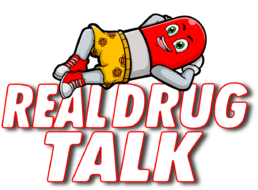“Xanax addiction was the thing that caused a lot of destruction in my life” – Leo Sleinis
Xanax (a Benzodiazepine) is a drug that many people have never heard of. We often see images of the highly addictive, illegal substance heroin or cocaine, but Xanax has been proven to be just as addictive and dangerous. In this blog post, we will explore why it’s so important for society to understand its effects on the body and mind.
What are Benzodiazepines?
Benzodiazepines are drugs that act as depressants of the central nervous system. They work by slowing down brain activity and reducing anxiety.
What is Xanax commonly used for?
Xanax is most often used as a treatment for anxiety, panic attacks and other related disorders. Exploring the drug in more detail reveals that it can also be prescribed to people with sleep issues, epilepsy or muscle spasms. Xanax is typically prescribed by a medical professional when the patient has been diagnosed with one or more of the disorders listed above. A doctor may also recommend it as an alternative to other treatments that have not worked for them in the past.
Statistics about Xanax addiction & use in Australia
In the year 2000, two million people in Australia have used Xanax. This number has grown to four million in 2015 – a 100% increase over 15 years.
It is estimated that Xanax addiction in Australia accounts for about 50% of the entire world’s abuse. The National Drug Strategy Household Survey (NDSHS) reported 18.0% of Australian adults had misused a prescription drug at least once during their lifetime.
What are the side effects of Xanax?
Traditional and short-term side effects can include drowsiness, sleep problems, loss of appetite or changes in mood. Other symptoms that may occur as a result of extended use of this drug can be tremors, muscle weakness, memory problems and sexual difficulties. Long term side effects of using Xanax can also include depression, seizures or withdrawal.
As you can see from the list of side effects above, Xanax is a dangerous drug that can have serious consequences for your health and well-being. If you are suffering with any mental health issue it is highly recommended to contact medical professionals first before considering taking this medication.
Xanax Addiction, Why can Xanax become addictive?
This drug is addictive because it works by slowing down the activity of a brain chemical called GABA. When this happens, relaxation and drowsiness may occur as well as potentially leading to addiction.
If you are taking Xanax for anxiety or panic attacks, use it according to the medical direction and under medical supervision.
Check out our personal stories page for more stories on how others have overcome addiction to Xanax and other substances.
Xanax and signs of addiction
Xanax can have negative effects including addiction and withdrawal symptoms. Signs of Xanax addiction could include:
- Suddenly taking more than prescribed or recommended
- Constantly feeling anxious and unrestful without it
- Feeling irritated at others who may have a problem with their use.
Long term use of Xanax can also cause withdrawal symptoms including:
- Insomnia
- Nausea and vomiting
- Depression.
Seeking help
If you think that you are addicted to Xanax, it is time for a serious intervention before the addiction becomes worse or your health deteriorates. You can speak with medical professionals who may be able to help get off of this drug.
Jack Nagle, Founder and Director of Connection Based Living, could also help if you think you may have a Xanax (or other drug) addiction. Please feel free to contact Jack by booking in a free consultation at https://connectionbasedliving.com.au/.
For more information, have a listen to our podcast “Xanax is 1 of the worst addictions out!” which you can find here: https://real-drug-talk.simplecast.com/episodes/xanax-is-1-of-the-worst-addictions-out. In this episode, we have mashed up some key points from our interview with Leo which demonstrates why Xanax addiction can be so bad.
Subscribe to our Youtube Channel: @Real Drug Talk on Youtube at https://www.youtube.com/channel/UC0vljiRRIz9FtodAEKlpu0g
Jack Nagle
Jack is a passionate advocate and company founder, interested in finding and creating solutions for service consumers in the Alcohol and Other Drugs sector.
His passion comes from his own experience of substance addiction and consuming services in some of his most vulnerable moments.
Currently, Jack is the Director and Founder of Connection Based Living and Real Drug Talk (Aus) Pty Ltd.
Connection Based Living is a contemporary addiction recovery coaching
program.
Real Drug Talk is a grassroots public health communications company with the mission of changing the paradigm in dealing with alcohol, drugs and addiction by telling the real stories of those impacted by substances and addiction.
Due to Jack’s advocacy, he has appeared on all major national media outlets commenting on contemporary alcohol and drug issues, been a part of Government and Research Bodies such as the Australian National Advisory Council on Alcohol and Other Drugs (ANACAD) and has been
involved in a number of research projects, including being published as an author on the paper: “A Web-Based Toolkit to Provide Evidence-Based Resources About Crystal Methamphetamine for the Australian Community: Collaborative Development of Cracks in the Ice”.



